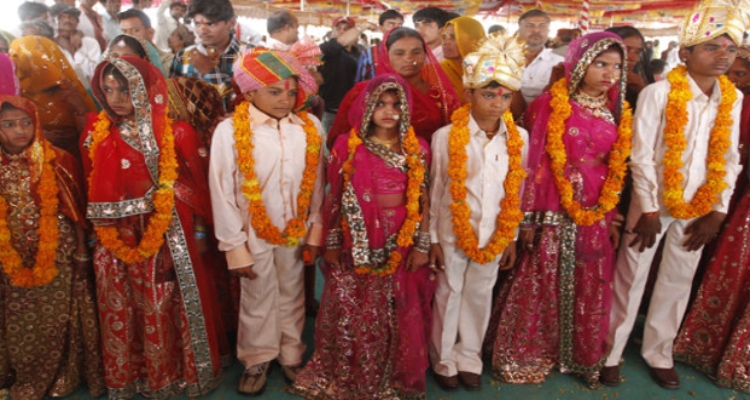Context:
The Rajasthan High Court held that village heads (Sarpanchs) and Panchayat members will be held accountable if child marriages are solemnised within their jurisdiction.
More on the News:
- The Rajasthan High Court issued a significant order directing the state government to ensure that no child marriages take place in the state.
- The court’s order came ahead of the upcoming Akshay Tritiya festival on May 10, a time when many child marriages are traditionally solemnized in Rajasthan.
- On hearing a PIL seeking the court’s intervention to prevent child marriages, the High Court noted that despite the Prohibition of Child Marriage Act, 2006 being in force, child marriages are still taking place in the state.
Observations and Call for Action:
- A division bench of the court acknowledges the reduction in child marriages due to authorities’ efforts but underscores the ongoing prevalence of the practice.
- The court highlights the need for heightened vigilance and proactive measures to combat the persistence of child marriages, particularly during cultural events like Akshay Tritiya.
- Referring to the Rajasthan Panchayati Raj Rules 1996, the court reminded about the duty of sarpanches to prevent child marriages within their jurisdictions.
- The High Court order further held that Village heads and panchayat members should be sensitised and informed of their responsibilities under Section 11 of The Prohibition of Child Marriage Act 2006, signalling potential legal consequences for negligence.
- As an interim measure, the court directed the state government to investigate instances of child marriages reported around Akshay Tritiya and called for stringent monitoring of such cases.
Prohibition of Child Marriage Act (PCMA), 2006
It is a crucial piece of legislation in India aimed at eradicating the social evil of child marriage. The Parliament enacted the Prevention of Child Marriage Act, 2006 by replacing the earlier legislation of the Child Marriage Restraint Act, 1929.
Objective:
To prohibit the solemnization of child marriages, where either the bride or groom is below the legal age of marriage.
- In India, the legal age of marriage is 18 for females and 21 for males.
To provide protection and assistance to victims of child marriages.
Key Provisions:
- Prohibition: The Act declares child marriages null and void.
Punishment:
- Male Adult: Any adult male (above 18 years) who contracts a child marriage shall be punishable with rigorous imprisonment which may extend to two years or fined up to one lakh rupees, or both.
- Solemnization: Anyone who performs, conducts, directs, or abets a child marriage shall be punishable with rigorous imprisonment which may extend to two years and shall be liable to fine which may extend to one lakh rupees unless he proves that he had reasons to believe that the marriage was not a child marriage.
- Promotion/Permitting: Promoting or permitting the solemnization of child marriages is also punishable.
Annulment: A child who was married as a minor can get the marriage annulled within two years of attaining 18 years of age.
Maintenance: The Act provides for maintenance and residence to the female contracting party of a child marriage.
Also Read :
Supreme Court Reserves 1/3rd Seats in Executive Committee of Bar Association for Women

